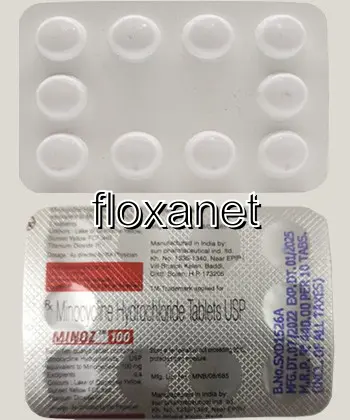| Package | Dosage | Price | Price per Dose | |
|---|---|---|---|---|
| Dosage: 50mg | ||||
| 45 pill | 50mg | $205.41 | $4.57 | |
| 30 pill | 50mg | $147.11 | $4.90 | |
| 15 pill | 50mg | $91.59 | $6.13 | |
| Dosage: 100mg | ||||
| 120 pill | 100mg | $467.74 | $3.90 | |
| 90 pill | 100mg | $365.03 | $4.05 | |
| 60 pill | 100mg | $269.26 | $4.50 | |
| 30 pill | 100mg | $151.28 | $5.04 | |

Minocycline Hydrochloride Description
Overview of Minocycline Hydrochloride
Minocycline Hydrochloride is a broad-spectrum antibiotic that belongs to the tetracycline class of medications. It is commonly used to treat various bacterial infections, including acne, respiratory tract infections, urinary tract infections, and skin infections. This medication works by inhibiting bacterial protein synthesis, which effectively halts bacterial growth and helps the immune system eliminate the infection.
How Minocycline Hydrochloride Works
The active ingredient, minocycline, penetrates bacterial cells and binds to the 30S ribosomal subunit. This binding prevents the attachment of aminoacyl-tRNA to the ribosome, blocking the addition of amino acids to the growing polypeptide chain. As a result, bacterial protein production is disrupted, leading to a bacteriostatic effect. Its ability to penetrate tissues and reach high concentrations makes it effective against a variety of bacteria.
Uses and Benefits
Minocycline Hydrochloride is particularly known for its effectiveness in treating moderate to severe acne. It reduces inflammation and kills bacteria that contribute to acne formation. In addition, it is prescribed for respiratory infections, such as bronchitis and pneumonia, as well as urinary tract infections and certain sexually transmitted infections. Patients often appreciate its convenience, as it typically requires a course of several weeks to achieve optimal results. Its systemic action can address infections caused by resistant bacteria, making it a valuable option in many scenarios.
Potential Side Effects
Like all medications, Minocycline Hydrochloride can cause side effects. Common reactions include nausea, dizziness, skin sensitivity to sunlight, and gastrointestinal disturbances. Some individuals may experience allergic reactions, such as rash or swelling. In rare cases, long-term use can lead to pigmentation changes of the skin, teeth, or gums. It is important for users to report any adverse effects to their healthcare provider promptly. Precautions should be taken especially for pregnant women and children, as tetracyclines can affect bone growth and teeth development.
Precautions and Interactions
Patients should inform their healthcare providers about any other medications they are taking, as Minocycline Hydrochloride can interact with drugs like antacids, iron supplements, and blood thinners. It is recommended to take this medication with a full glass of water and avoid lying down immediately afterward to minimize irritation of the esophagus. Due to photosensitivity, users should limit sun exposure and wear protective clothing or sunscreen. It is crucial to follow prescribed dosages and complete the full course of treatment to prevent resistance and recurrence of infection.
Conclusion
Minocycline Hydrochloride remains a versatile and effective medication for many bacterial infections. Its benefits in conditions like acne have made it a popular choice among healthcare providers. Nonetheless, awareness of potential side effects and interactions is essential for safe and effective use. Proper consultation with a healthcare professional can ensure that Minocycline Hydrochloride is used appropriately and that treatment outcomes are optimized. With responsible use, this medication can provide significant relief and infection control for many patients.